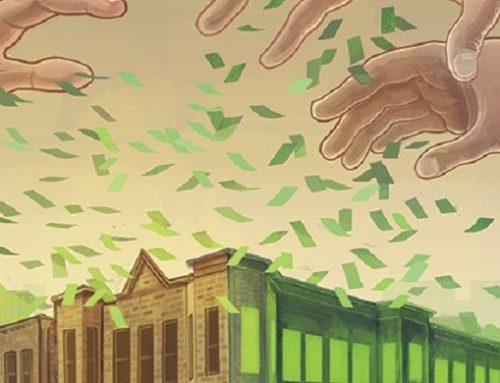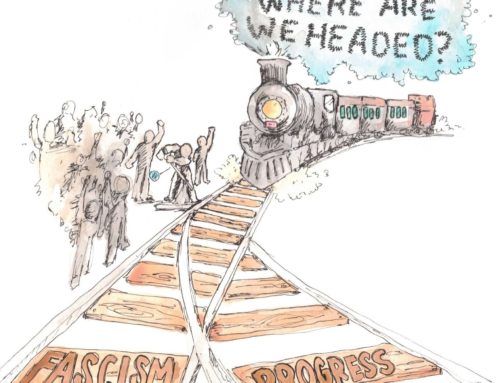By Anu Muhammad
Anu Muhammad is with the Department of Economics, Jahangirnagar University, Dhaka, Bangladesh. This is a brief excerpt of his article, reprinted with permission. For the full text please see meghbarta.info
Bangladesh’s ready-made garments industry has taken the low road to competitive advantage. Local capitalists, the big retailers and western governments are reaping the benefits of the super-exploitation and repression of the (mostly women) workers. Inevitably, the resistance of the victims is taking shape. The annual turnover of the readymade garments (RMG) industry in Bangladesh is now almost $9 billion; it employs around 3.5 million workers, more than 80% of them women. RMG account for nearly 80% of the country’s export earnings and are the second largest source of the nation’s foreign currency after remittances.
According to official estimates, nearly 4,500 garment factories are now in operation in the country, some of these factories work as subcontractors of the bigger ones. Over 70% of these factories are located in and around Dhaka, the capital city. The rapid expansion of this export-oriented industry has given the industrial sector a new landscape. The RMG industry has also created a huge labour force, mostly women, with lower wages and severe regimentation. Many workers were tortured and killed for their attempts to organise struggles for rights and decent levels of living.
Neo-liberal Agenda: As a newly independent country, Bangladesh inherited some big industrial enterprises in jute, textile, steel and sugar. Most of these were initially established with state patronage or with huge subsidies, and later owned by Pakistani big business houses. They were abandoned by them after independence in December 1971, and nationalised in early 1972. These enterprises formed the industrial mainstay of the newly independent country. They had strong trade unions mostly organised by the left parties. Workers of these big enterprises, located mostly in Dhaka, Khulna and Chittagong, had been organised and were politically active since the early 1960s. They played a crucial role in the political movement against military rule led by general Ayub Khan, the mass uprising in 1969 and later, the war of independence in 1971. After independence, all governments, civil or military, did all they could to capture these trade unions. They even resorted to violence and killing to gain control and install corrupt persons in the trade union leadership. Abuse of trade unions went to its extreme during the 1980s under military rule, with general Ershad in the saddle.
With the co-option of labour leaders into the ruling elite, corruption in association with management became common practice. This was sufficient reason for the spread of mistrust among workers against the leaders, and weakened the power of the trade unions to assert the workers’ agenda. With the World Bank’s privatisation projects, a number of top labour leaders were bribed in various ways, including foreign trips to ensure the success of privatisation. Gradually most of these trade unions became tools of the ruling party and were thus alienated from the general workers.
Corrupt practices have contributed to a loss of credibility and a decline in the strength of the trade unions. From the 1980s, the industrial sector became a direct victim of “structural adjustment programmes” and the increasing influence of neo-liberal policy pushed by the World Bank and the International Monetary Fund (Muhammad 2006a). Privatisation of state-owned enterprises, downsizing of industrial units, closing down of “loss-making” enterprises and retrenchment of workers have been a high priority of successive governments. The “reforms” resulted in the erosion of public enterprises, eventually leading to de-industrialisation and consequent widespread unemployment.
The process was at its peak in 2002 with the closure of Adamjee Jute Mills, the world’s largest jute enterprise. The demise of this enterprise was arranged in the name of “jute sector development” with a $250 million loan from the World Bank. The neo-liberal policy and the institutional reforms that had shaped the government actions also had a strong ideological-political dimension. These reforms were intended to dismantle old industries, expand the domain of private capital, and smash workers’ strongholds. Moreover, they were intended to create a large pool of labour – disorganised, scattered, unable to assert its rights, and forced to accept low wages.
The evolution of the export-oriented RMG industry in Bangladesh coincided with these reforms. The new industry enjoyed policy and material support from both the government and the international financial institutions. It also had other favourable factors including quotas under the multi-fibre agreement that ensured an international market. The new rich were looking for high-profit investment opportunities; they became the new owners. A huge pool of unemployed young women from poor families, ready to work for rock bottom wages and longer working hours, made up the work force.






As you know most of the communities (such as Bengali or Tamils) in this sub-continent are covered by ‘Culture of Poverty (hopelessness)’, irrespective of class or economic strata, lives in pavement or apartment. Nobody is ashamed of the deep-rooted corruption in this society, decaying general quality of life, worst Politico-governance, bad work place, weak mother language, continuous consumption of common social space (mental, physical both). We become parents only by self-procreation, mindlessly & blindfold(supported by lame excuses) depriving their(the children) fundamental rights of a decent & caring society, fearless & dignified living. Do not ever look for other positive alternative gesture/values to perform human way of parenthood, i.e. deliberately stop giving birth to any child him/herself till the society improves up to the mark, co-parenting children those are born out of extreme poverty, instead. All of us are driven only by the very animal instinct. If we, the Bengali people ever desire genuine freedom from vicious cycle of poverty, rotten capitalism, need to involve ourselves in Production of Space movement, one definite commitment with the society to overcome inherent ‘hopeless’ mindset, decent Politics would certainly come up. – SB, 16/4, Girish Banerjee Lane, Howrah -711 101, India.
Bangladesh clothing business has matured, aged, achieved number 2 position in consideration of supplying capacity for the world market and still moving up to hold the number 1 position in next 5 years; besides world market size has elasticated, demand & uses increased, but prices are so competitive; although Bangladesh garments factory handling the situation successfully and Bangladesh clothing business survived very well in consideration of low-cost manufacturing comparing to other countries